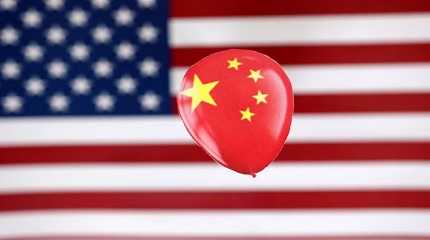
WASHINGTON/BEIJING, Feb 6 (Reuters) - The U.S. Coast Guard on Monday imposed a temporary security zone in waters off South Carolina during the military's search and recovery of debris from a suspected Chinese spy balloon that a U.S. fighter jet shot down.
The White House said the balloon's flight over the United States had done nothing to improve already tense relations with China and its national security spokesperson dismissed Beijing's contention that the balloon was for meteorological purposes as straining credulity.
Beijing condemned the shooting down of the balloon and urged Washington to show restraint over the episode. White House national security spokesperson John Kirby told reporters: "Nobody wants to see conflict here."
U.S. Secretary of State Antony Blinken postponed a planned Feb.5-6 visit to China because of the balloon's flight into U.S. airspace last week. It was shot down off the Atlantic Coast on Saturday.
Kirby said Blinken would seek to reschedule the trip when the time is right.
The trip to Beijing would have been the first by a U.S. secretary of state since 2018 as the United States and China have sought to mend ties that have been under severe strain over a range of disagreements, including U.S. attempts to block Chinese access to some cutting-edge technologies.
INTELLIGENCE GATHERING
The United States was able to study the balloon while it was aloft and officials hope to glean valuable intelligence on its operations by retrieving as many components as possible, Kirby said.
China called the shooting down of the balloon an "obvious overreaction".
"China firmly opposes and strongly protests against this," Vice Foreign Minister Xie Feng said in remarks to the U.S. embassy in Beijing posted on the ministry's website.
U.S. officials have played down the balloon's impact on national security, although a successful recovery could potentially give the United States insight into China's spying capabilities.
Senior U.S. officials have offered to brief former Trump administration officials on the details of what the White House said was three China balloon overflights when Donald Trump was president. U.S. officials said those balloons came to light after Trump left office in January 2021 and was succeeded by President Joe Biden.
A senior U.S. general responsible for bringing down the balloon said on Monday the military had not detected previous spy balloons before the one that appeared on Jan. 28 over the United States and called it an "awareness gap."
However, Air Force General Glen VanHerck, head of U.S. North American Aerospace Defense Command and Northern Command said U.S. intelligence determined the previous flights after the fact based on "additional means of collection" of intelligence without offering further details on whether that might be cyber espionage, telephone intercepts or human sources.
On Monday, Chinese foreign ministry spokesperson Mao Ning said China learned that its balloon had drifted over the United States after being notified by Washington.
"The unintended entry of this airship (into the U.S.) is entirely an isolated, accidental incident. It tests the sincerity the U.S. has in improving and stabilizing bilateral relations and the way it handles crises," she said.
Mao said another balloon, spotted over Latin America, was an unmanned civilian airship on a test flight that "severely deviated and unintendedly entered the space above Latin America because it was affected by the weather and because it has limited self-steering capability."
On Sunday, Colombia's military said it sighted an airborne object similar to a balloon after the Pentagon said on Friday that another Chinese balloon was flying over Latin America.
POSSIBLE REPERCUSSIONS
While calling for U.S. restraint, China has warned of "serious repercussions" and said it will use the necessary means to deal with "similar situations", without elaborating. Some policy analysts said they expect any response to be finely calibrated, however, to prevent diplomatic ties becoming even worse.
Brokerage ING said in a Monday note that the incident could exacerbate the "tech war" and would have a negative near-term impact on China's yuan currency.
"Both sides will likely impose more export bans on technology in different industries. This is a new threat to supply chain disruption, although the risk of logistical disruption from COVID restrictions has now disappeared," it said.
"This new risk is more of a long-term risk than an imminent one," ING said.




